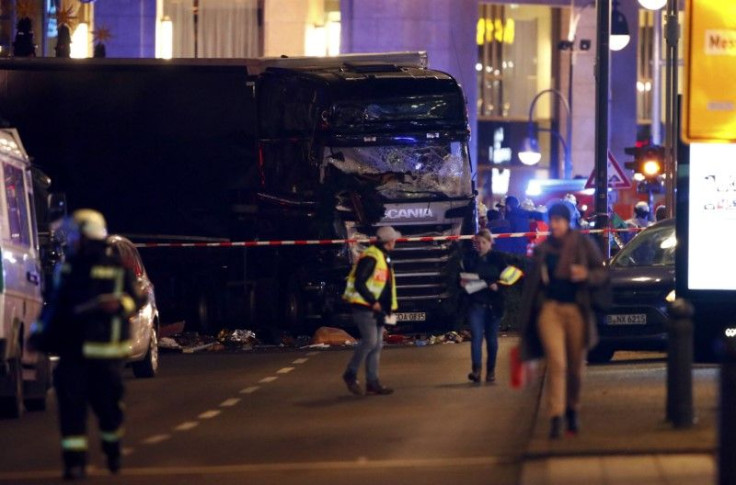What Is Salafism? Berlin Truck Attack Suspect May Have Had Links To Salafist Preacher

The suspect German police were pursuing this week in connection with a truck attack that killed 12 people at a Berlin Christmas market Monday had links to a Salafist preacher, according to German media reports. German authorities found an identity document belonging to a Tunisian man, named only as Anis A., who entered Germany and applied for asylum in July 2015 having initially arrived in Italy in 2012, reported Süddeutsche Zeitung.
The suspect was believed to have previously come to the attention of German authorities because of links to Salafist groups in western Germany, including to Ahmad Abdulaziz Abdullah A, known as Abu Walaa, or the “faceless preacher.” Abu Walaa was arrested last month as part of a crackdown by German authorities on extremist Salafists, who they believe were radicalizing young Muslims in the country. Abu Walaa is alleged to have given sermons encouraging people to travel to Syria to fight for the Islamic State group.
The rise of ISIS in recent years has sparked fresh awareness of Salafism. The word “salaf” in Arabic means “ancient one,” which offers a key insight into the ideology behind the movement. The followers of the ultra-conservative branch of Sunni Islam seek a return to the ancient traditions of Islam, to “purify” it of anything that wasn’t explicitly condoned by the Prophet Muhammad or upheld by his immediate followers. The rules are strict and pertain to all matters of daily life. Gender segregation is also strict and the rights of women extremely limited.
But Salafism in itself is not violent or even political. Indeed, historically, Salafists shunned political involvement and criticized political groups such as the Muslim Brotherhood in Egypt, with the movement instead focused on the purification of their individual lives.
However, in the wake of the Arab Spring and the power vacuum that emerged in several countries across the Middle East, Salafist political groups sprung up as did networks of Salafist-jihadists.
The extreme form of Salafism rejects both involvement in modern politics and all forms of Western influence, but advocate extreme violence in their attempts to create a society that returns to a centuries-old version of Islam.
In the aftermath of the Tunisian revolution six years ago a growing Salafist problem emerged in southern Tunisia. The suspect in the Berlin truck attack is reported to have been born in the southern Tunisian city of Tataouine.
Meanwhile, German authorities last month reported that the total number of Salafists in the country had risen to 7,900. However, Germans have been urged not to see all Salafists as violent.
“We make a distinction between the purist Salafists, who live out their ideology for themselves, and who romanticize it a little, then there are the missionary Salafists, who officially reject violence," Aylin Yavas of Ufuq, an organization which provides education about Islam and aims to counter Salafist extremism told German outlet Deutsche Welle."Then the third group are the ones that are prepared to carry out violence - but not even all of those are necessarily jihadists. They might join violent protests, but would not carry out terrorist attacks. It's a relatively small scene – both the violent and the non-violent Salafists – but they do have a big reach, at least on social media.”
CLARIFICATION: 4.23 p.m. EDT -- The original headline for this story implied that Salafism was an ancient Islamic movement rather than a movement inspired by ancient Islam. The headline has been adjusted to reflect that fact.
© Copyright IBTimes 2024. All rights reserved.











